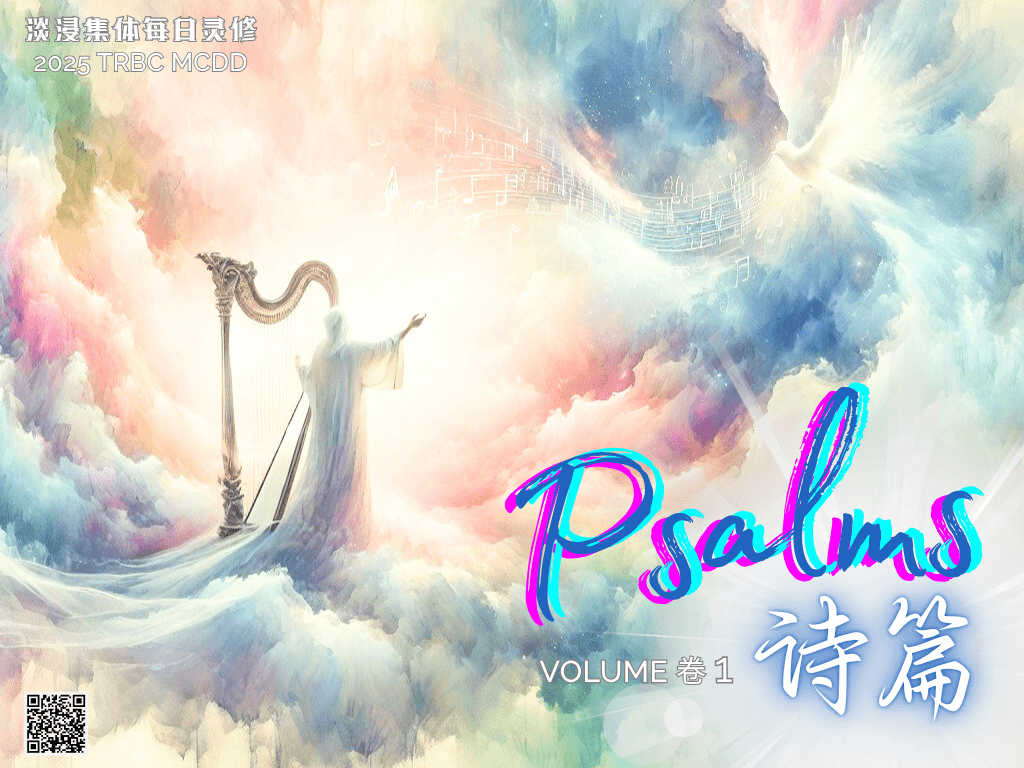Last 5 Days

Faith in time of fear

Click here to read Ch11
Psalm 11 is a psalm of faith in the midst of fear. Written by David during a time of intense persecution—likely while he was fleeing from King Saul—it is a deeply personal and powerful declaration of trust in God. The psalm is structured as a response to a concerned friend urging David to escape from his powerful enemies:“Flee like a bird to your mountain!” (v.1) In modern terms, it’s like someone saying, “Run for your life! Get out of there before it’s too late!”
Why such urgency? “For behold, the wicked bend the bow; they have fitted their arrow to the string…” (v.2) Today, it’s as if someone already has a gun pointed at your head. The message is clear: the danger is real, and running is the sensible thing to do! It's a natural instinct to react in self-preservation.
And while the advice may be well-meaning, it is ultimately ungodly. It reminds us of the moment in Matthew 16:22–23, when Peter tried to stop Jesus from going to the cross. Peter’s intentions were good, but Jesus rebuked him sharply: “Get behind me, Satan!” Why such a strong reaction? Because Peter’s words—though caring—were out of alignment with God’s purpose. They were rooted in fear, not in faith.
Psalm 11 describes attacks happening “in the dark.” That’s often where fear thrives—in the unseen, the unknown. It’s not just the threat itself, but the uncertainty around it that makes fear so powerful.
Imagine a young woman working in a large corporation. One day, in her role in the finance department, she uncovers documents exposing high-level corruption—fraud, embezzlement, illegal activity. She’s just a junior staff member. No power, no connections. If she speaks up, she risks everything: her job, her career, even her safety.
A close friend urges her: “Don’t be stupid. Just delete the file. It’s not your fight. Protect yourself.” And the friend isn’t trying to be evil. She’s trying to protect her. “You have your whole future ahead of you. Don’t throw it away.” Now the young woman stands at a crossroads. She's not just facing danger—she’s facing the fear of the unknown. Will there be retaliation? Will anyone believe her? What will happen to her life? This is exactly the kind of moment Psalm 11 describes: “The wicked bend their bows to shoot from the shadows at the upright in heart.” And like David, she must choose: run or stand.
David doesn’t deny the danger—but he chooses not to respond in fear. Instead, he responds with faith in who God is: “The Lord is in His holy temple; the Lord’s throne is in heaven.” (v.4) What does that mean? The templespeaks of God’s presence on earth.The throne speaks of God’s sovereignty in heaven. In other words, God has not gone anywhere. His eyes are watching, His presence is near, and His authority is unshaken. He is neither distant nor unaware. If God is only on earth, He may be limited. If He is only in heaven, He may seem removed. But our God is both present and sovereign—almighty and all-knowing. That’s why David can say with confidence: “In the Lord I take refuge.” (v.1)
So what should our response be when fear comes? Not to run from people, but to seek the Lord first. This doesn’t mean we should foolishly stay in harm’s way. Even David fled when necessary—he didn’t stay around to be killed by Saul. But his first instinct wasn’t panic. It was prayer. Psalm 11 doesn’t ask us to pretend danger isn’t real. It asks us to anchor ourselves in the presence and power of the God who sees all and reigns over all. “In the Lord I take refuge.” May that be our first response, always—not fear, but faith.
Prayer:
Lord, in the midst of fear and uncertainty, help us to trust You fully. Remind us that You are always present, watching over us with power and love. When we feel afraid, may we run to You, our refuge and strength. Give us courage to stand firm in faith, knowing that You hold all things in Your hands. In Jesus’ name, Amen.
